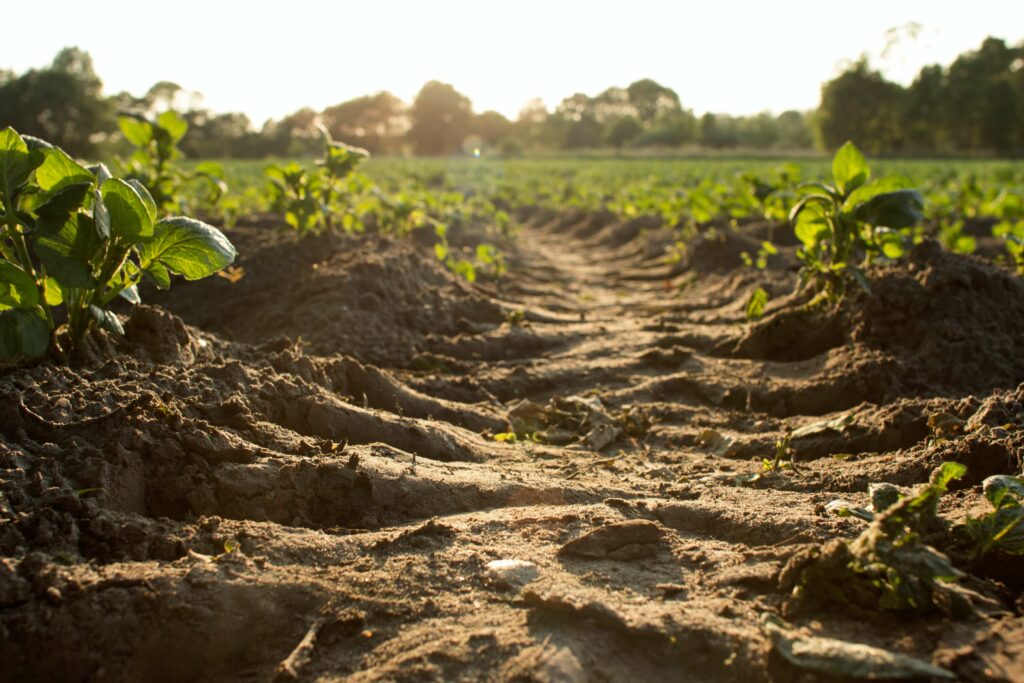Gardening is a zen activity that can help clear your mind, get you in touch with nature, and give you a space to be creative.
But if your soil quality is poor, all your hard work will go to waste.
Here are 4 tips from the pros on how to improve soil quality and make your garden thrive.
What is Soil Quality?

Soil quality is a measure of the ability of soil to function within an ecosystem. It is determined by physical, chemical, and biological properties.
Physical properties include:
- Texture
- Porosity
- Permeability
- Bulk density
Chemical properties include:
- pH
- Organic matter content
- Nutrient availability
Biological properties include:
- Microbial activity
- The abundance and diversity of soil fauna.
All these properties interact to determine the capacity of soil to provide for plant growth, control water and wind erosion, store and cycle nutrients, and filter and detoxify pollutants.
Therefore, soil quality is essential in managing land for sustainable use.
Physical Properties
Texture:
Soil texture refers to the size of the particles that make up the soil. The three main particle sizes are sand, silt, and clay.
Soil with a high sand content is coarse and rough, while soil with a high clay content is fine and smooth.
The ideal soil texture mixes all three particle sizes, providing the perfect drainage and moisture retention balance.
However, other factors, such as organic matter content and pH level, can also affect soil texture.
Porosity:
Porosity measures how much space there is in a material.
Soil porosity is crucial because it affects many aspects of soil quality, including water holding capacity, aeration, drainage, and infiltration.
The porosity of soil depends on the type and amount of particles that make up the soil, as well as the particles’ size, shape, and arrangement.
Permeability:
Permeability is a measure of how easily water can move through the soil. It is affected by the type of soil, the amount of organic matter in the soil, and the density of the soil.
Well-drained soil is more permeable than poorly drained soil. Sandier soils are more permeable than clay soils.
Soil with a high organic matter content is more permeable than soil with a low organic matter content. A highly porous Soil has a high degree of permeability.
Bulk Density:
The soil quality is essential for growers to consider because it directly impacts the success of their crops.
One indicator of soil quality is bulk density, which measures the amount of space soil particles occupies in a given volume.
Bulk density can be affected by several factors, including the type of plants grown in the soil, the amount of organic matter present, and how well the soil is aerated.
Growers should keep an eye on bulk density levels, as too much or too little space between particles can negatively impact plant growth.
By monitoring bulk density, growers can ensure that their soil provides optimal plant growth conditions.
Chemical Properties:
pH:
The soil quality pH measures the acidity or alkalinity of the soil.
This value is significant because it affects the availability of nutrients for plants, as well as the activity of soil microorganisms.
The ideal range for most plants is between 6 and 7, although some prefer a slightly more acidic or alkaline environment.
The best way to determine the soil quality pH is to use a soil test kit, which can be purchased from any garden centre.
Follow the instructions included with the kit, and you will have an accurate reading.
With this information in hand, you can make any necessary adjustments to ensure that your plants can thrive.
Organic matter content:
The organic matter content of the soil is an essential factor in soil fertility.
Organic matter is composed of decaying plant and animal materials, and it helps to improve soil structure, aeration, and water retention.
It also provides a slow release of nutrients, which can benefit plant growth.
Adding organic matter to the soil can also help improve its ability to support microbial life.
Soils with higher organic matter content are generally more productive and healthier than those with lower content.
As a result, adding organic material to the soil is essential to maintain fertility regularly. It can be done by adding compost, manure, or other organic materials.
Biological Properties:
Microbial activity:
Microbial activity is known to have a significant impact on soil quality.
An essential function of microbes in the soil is their ability to release plant nutrients, such as nitrogen and phosphorus, through decomposition.
This process is essential for plant growth and helps to maintain soil fertility. In addition, microbial activity can also improve the structure of the soil, making it more resistant to erosion.
Furthermore, microbes play a vital role in the carbon cycle, helping to sequester atmospheric carbon dioxide in the soil.
As a result, microbial activity is essential for sustaining healthy soils.
The abundance and diversity of soil fauna:
The soil is teeming with an extraordinary abundance and diversity of life.
Millions of species of bacteria, fungi, algae, protozoa, and nematodes live in soils, along with a myriad of other microorganisms.
These soil animals play a crucial role in decomposing organic matter and releasing nutrients for plant growth.
In addition, soil animals help to aerate the soil and improve its water-holding capacity.
As a result, healthy soils are vital for the sustainable production of food crops.
Unfortunately, human activities such as intensive agriculture and urbanization have led to a decline in the abundance and diversity of soil fauna in many parts of the world.
This loss of biodiversity can have severe consequences for the health of ecosystems and the people who rely on them.
How to Improve Soil Quality: 4 Tips

Composting
Composting is an efficient way to reduce waste while improving soil quality.
By breaking down organic matter, composting helps release vital nutrients into the soil, improving plant growth.
In addition, composting helps to improve water infiltration and drainage, making it an ideal amendment for sandy or clay soils.
Composting also provides a valuable food source for microbes, which helps to break down organic matter and release essential nutrients.
As a result, composting is an effective way to reduce waste and improve soil quality.
Mulching
Mulching is an excellent way to improve the quality of your soil.
Adding a layer of mulch to your garden can help conserve moisture, reduce weed growth, and protect your plants from extreme weather conditions.
Mulch also helps to improve the structure of your soil, making it more fertile and better able to support plant growth.
There are many different types of mulch available, so you can choose one that best suits your needs. Organic mulches, such as leaves or grass clippings, can be added directly to your soil.
Inorganic mulches, such as gravel or black plastic, can also be effective in improving soil quality.
No matter which type of mulch you choose, applying it evenly and at the correct depth is essential.
Too much mulch can smother your plants, while too little will not provide adequate protection. With a little trial and error, you can find the perfect mulching solution for your garden.
Cover Crops
One of the most effective ways to improve soil quality is to plant cover crops.
Cover crops are plants that are grown to protect and enhance the soil rather than being harvested for food or other uses.
When planted in fall, cover crops can help improve the soil’s structure and increase its ability to retain water.
They can also add organic matter and nutrients, which can help encourage healthy plants’ growth.
In addition, cover crops can help to suppress weeds and reduce soil erosion. As a result, planting cover crops is an excellent way to improve the health of your soil.
Manure
Manure is a type of organic matter that can be used to improve soil quality.
It comprises decomposed plant material, animal waste, and other organic matter.
Manure can help to improve soil fertility by adding essential nutrients, such as nitrogen, phosphorus, and potassium.
Additionally, it can help to improve soil structure by increasing the amount of organic matter in the soil.
It helps to improve drainage and aeration, and it also helps to hold onto moisture better.
Finally, manure can also help to suppress weed growth and provide a source of food for helpful microbes that live in the soil.
As a result, using manure can be an effective way to improve the quality of your soil.
Frequently Asked Questions:
What is the best way to improve soil quality?
How can I add organic matter to my soil?
What is the best way to reduce soil erosion?
How can humans help to improve the quality of the soil?
The Bottom Line
Improving your soil will take time and effort, but the benefits are worth it. These four methods are just a starting point; there are many other ways to improve soil health. Keep experimenting until you find what works best for your farm or garden!
